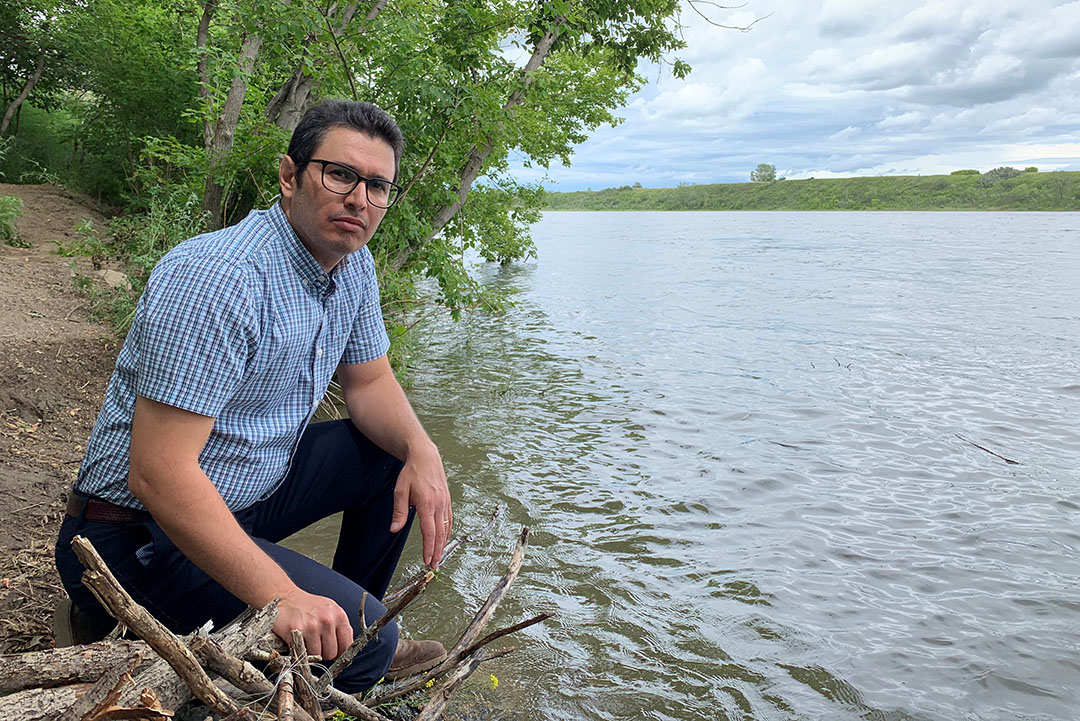
USask researcher celebrated for work in complex water-human systems
Dr. Saman Razavi (PhD) received the Walter L. Huber Civil Engineering Research Prize from the American Society of Civil Engineers (ASCE) for bridging hydrology, data sciences, and socioeconomics.
By Erin Matthews Research, Profile and ImpactWith the changing climate, increased water usage and evolving drought and flood risks, our relationships and interactions with water resources are becoming more complex. Predicting the challenges that we face can help solve future problems – which is the focal point of Razavi’s work.
Razavi is an associate professor in both the School of Environment and Sustainability (SENS) and the Department of Civil, Geological and Environmental Engineering in the College of Engineering at the University of Saskatchewan (USask). He develops computer models that blend physical and socioeconomic principles, data analytics and AI algorithms to study complex systems including the interactions between humans and water in processes like drought, irrigation and flooding. These models simulate real-world scenarios of climate and policy change, helping to predict and manage potential, often unexpected, situations.
“Integrated models are essential for informing decision and policy making,” said Razavi. “We tackle very complex problems with a myriad of interconnected systems. You may be able to fix a problem in one system but, because it’s connected to another, your decision and solution may have unintended impacts elsewhere.”
Razavi was one of five recipients of a Walter L. Huber Civil Engineering Research Prize in 2024, awarded for notable and impactful achievements in research related to civil engineering. Razavi said that his research has evolved over the years, increasingly focusing on the interface of science and policy around water through integrated modeling. This approach brings together various disciplines such as hydrology, climate science, biology, engineering, computer science, social sciences and economics to develop a holistic, unified platform that can account for complex interactions in human-water systems. This was the focus of his recently concluded project Integrated Modelling Program for Canada under Global Water Futures.
As a member of the Global Institute for Water Security (GIWS), Razavi’s work focuses on the field of hydrology and water resources, working across disciplines to assess water challenges in Saskatchewan and beyond.
“Developing an integrated model that couples different disciplines allows us to evaluate numerous decision options and potential future pathways,” said Razavi. “Such a model facilitates dialogue and collaboration between researchers, decision makers, and stakeholders, from large organizations to small communities with diverse sometimes competing interests.”
The Huber Prize was established in 1949 and is awarded annually to mid-career researchers with notable accomplishments in the field of civil engineering.
Together, we will undertake the research the world needs. We invite you to join by supporting critical research at USask.

